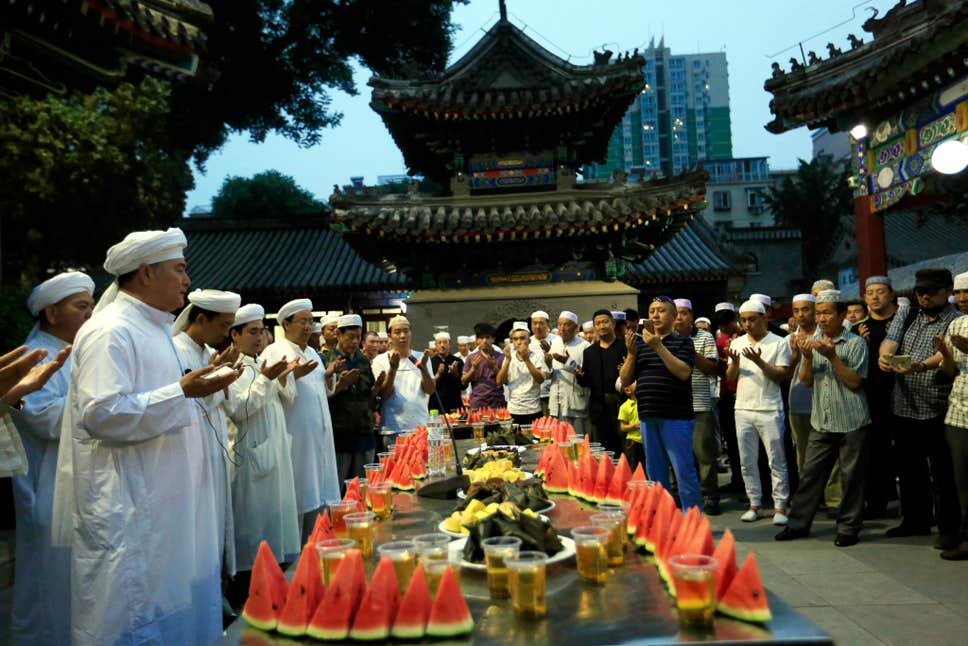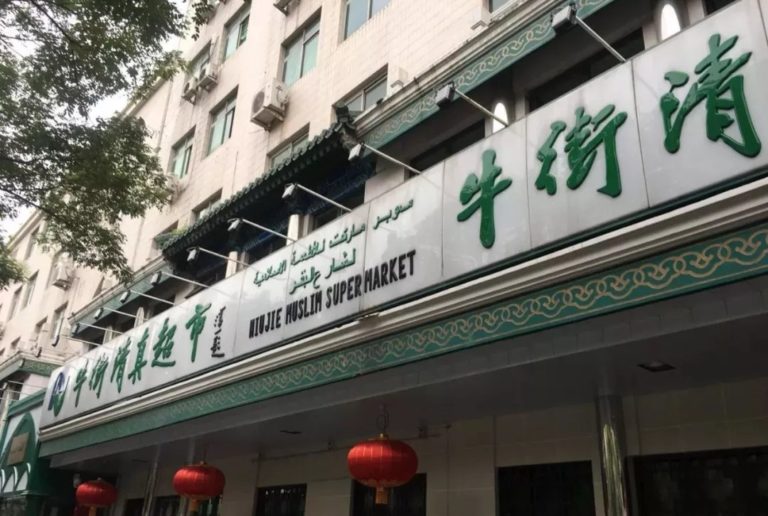Dig deep into Beijing’s less touristy spots, and you will come across Niujie or Ox Street. This neighborhood of Guang’anmen is home to Beijing’s largest and long-standing ethnic Hui Muslim community.

The area’s most iconic landmark is none other than the Niujie Mosque, which dates back to 996 A.D. of the Liao Dynasty. It has since gone through multiple extensions and renovations, with the latest large-scale repair under Emperor Kangxi of Qing Dynasty. Contrary to most mosques that you might have seen or come across, the Niujie Mosque is uniquely Chinese in architectural design combined with ornate decorations of Arabic-style inscriptions and motifs.
Visitors to the mosque are most welcomed, but females must cover their hair. Non-worshippers are not allowed to enter the prayer halls. With the arrival of Ramadan, for Beijing expats out there of the Islamic faith, a trip to Niujie is a must.
Beside the mosque are a plethora of halal restaurants, butcher shops, and even a large supermarket. You may notice that a lot of the buildings are decorated in green. That’s because the color green is associated with paradise in the Quran.

Even if you are not of the Islamic faith, here are some useful vocabularies and phrases to pick up if by chance you encounter a fellow Muslim in Niujie or just anywhere in China!
-
1 The Quran
The holy book of Quran in Chinese is translated as Gǔlán Jīng (古兰经).
-
2 Salaam
Greetings across the Islamic world are universal. When you meet a Chinese Muslim (whether he or she is ethnic Hui, Uyghur, Salar, Dungan, Tajik, Kazakh, etc.), you greet him or her with “As-salaamu Alaykum” which means “Peace be upon you.” In return, the other person will respond with the following greeting, “Wa ‘alaykumu s-salam” which means “And peace be upon you.”
-
3 Ramadan and Eid al-Fitr

European Pressphoto Agency
Ramadan, the fasting month for Muslims, is known as Zhāiyuè (斋月) while Eid al-Fitr, “Festival of Breaking the Fast” that ends Ramadan is known as Kāi Zhāi Jié(开斋节).





0 Comments